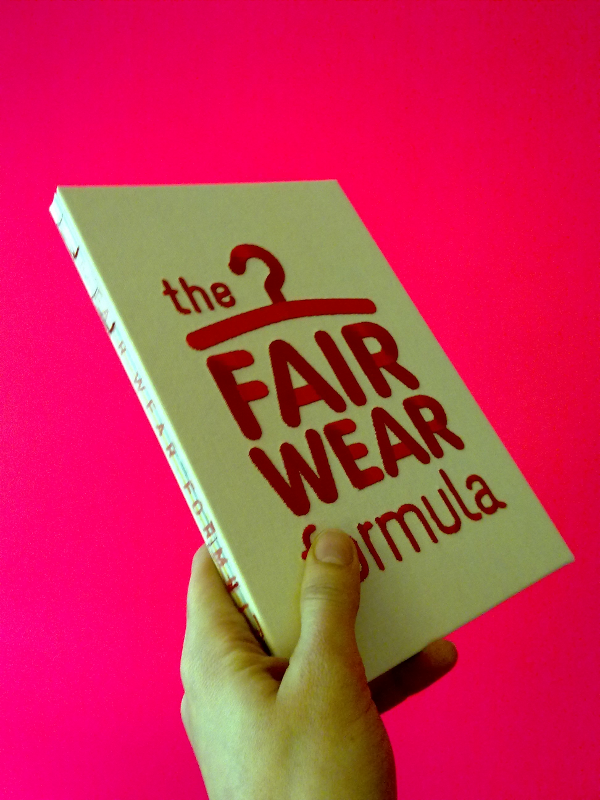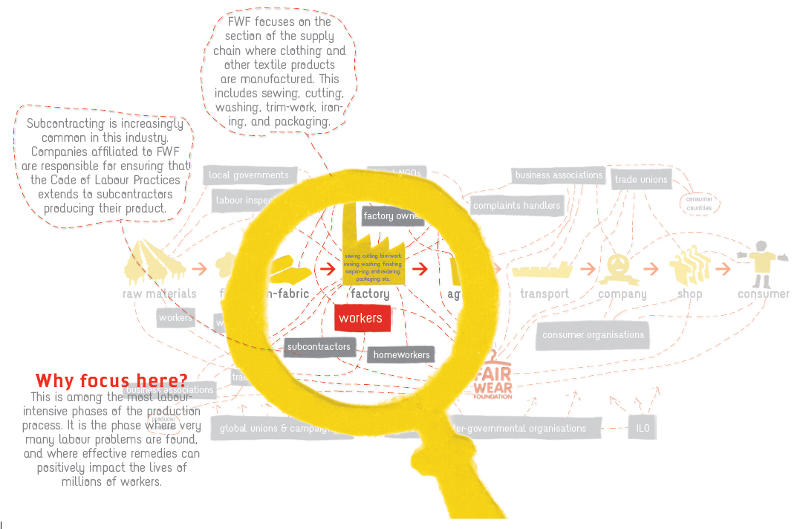The Fair Wear Foundation (FWF) has launched a new publication, the Fair Wear formula.

“The design by Ruben @ Buro RuSt combines with the more than readable texts by Anne Lally combine to create an innovative, attractive description of the FWF approach to improving labour conditions in garment supply chains. In hardback or paperback.” (FWF)

Image: FWF’s focus (image from the Fair Wear formula, (c) Buro RuSt
If you aren’t already familiar with the Fair Wear Foundation, an international verification initiative dedicated to enhancing workers’ lives, take a minute to check out their guiding principles:
Supply chain responsibility = realising that the Code can only be fulfilled when sourcing companies, as well as factory management, actively pursue practices that support good working conditions.
Labour standards derived from ILO Conventions and the UN’s Declaration on Human Rights = basing FWF’s Code on internationally-recognised standards which have been set through tri-partite negotiation.
Multi-stakeholder verification = verification processes developed through multi-stakeholder negotiation, and involving experts from diverse disciplines and perspectives in FWF verification teams.
A process-approach to implementation = paying special attention to the means (i.e. building functioning industrial relations systems over time) in order to achieve the end (i.e. sustainable workplace improvements).
Involvement of stakeholders in production countries = engaging local partners in shaping FWF’s approach in a given region or country.
Transparency = keeping relevant stakeholders informed of FWF policies, activities, and results; publicly reporting on member company efforts to fulfil FWF requirements.
For more information on this publication, and others, contact info@fairwear.nl

